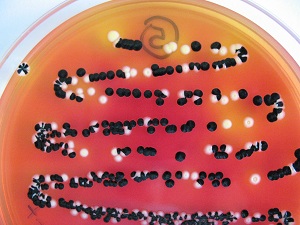 What is Food Science?
What is Food Science?
Food Science deals with the processing of raw agricultural produce into food products that are acceptable for human consumption. Food science is an exciting field of study that applies sciences such as Chemistry, Biochemistry and Microbiology to discover ways to improve the taste, nutrition and quality of the food supply to meet the world's ever-increasing demand. Food preservation and processing, food analysis, product development, food packaging and the implementation of food quality and safety systems are also studied.
The Department of Food Science at Stellenbosch University is viewed as one of the leading training institutions in South Africa, with a strong focus on research for which it is internationally renowned. It is a dynamic department, with staff members who are passionate about teaching, and who engage in innovative and relevant research. It constantly seeks to improve existing techniques by which new products are developed, processed, packaged, stored and transported. The mission of the Department is to be a nationally and internationally competitive centre of excellence in Food Science and to supply, through visionary education and innovative research, the South African food industry with cutting-edge technology, knowledge and environmentally friendly products and practices, as well as well-trained role players.
Programme Information
This four-year programme trains students to convert raw materials into the innovative, safe, wholesome and tasty food products that are available in supermarkets. You will learn to apply the knowledge of the fundamental sciences such as chemistry, biochemistry, physics, mathematics and microbiology to food processing, preservation, packaging and product development.
There is close contact with the South African food industry in this programme through regular factory visits and compulsory industry training. This will expose you to a wide variety of aspects of food science.
Students who have obtained the BSc (Food Sc) degree can be appointed as innovative product developers or as managers in various divisions of food companies, such as production, product development, quality control, research and development, and the technical side. They can also be researchers in tertiary and research institutions, or entrepreneurs and, once sufficiently experienced, consultants to the food industry. Stellenbosch University's food scientists are sought after worldwide.
Postgraduate programmes
- MSc Food Sc
- PhD Food Sc
- DSc Food Sc
Research
The Department has a strong research culture (link to: http://www0.sun.ac.za/foodsci/index.php?page=research-facilities) based on the application of fundamental scientific principles and focuses on expanding the understanding of foods as biomaterials.
Research covers a broad area and focuses on various themes: In food microbiology the diversity of microbic populations is researched by means of conventional and molecular techniques. The environmental theme focuses on the impact that food processing has on water use, properties of wastewater and treatment possibilities. The food safety theme is based on the occurrence, identification, survival and control of potential pathogens in food processing. The spectroscopy theme uses near-infrared (NIR) spectroscopy and NIR hyper-spectral image analysis for qualitative, quantitative and authenticity studies of agricultural and food products. In the cereal quality theme the focus is, first, on the underlying factors influencing cereal quality, such as endosperm texture, and secondly, on the development of methods for early identification of feasible cultivation lines – in co-operation with South African cereal research institutions. Multidisciplinary fields are involved in the sensometric theme: chemical, physical and sensory properties of food products are correlated by using statistical techniques to determine the drivers of consumer choices.
A stimulating research environment is created by fostering strong student-staff interactions. This is reflected in the fact that significant research funding is attracted annually – a sign of both the high quality research the Department undertakes and the relevance of the degrees offered – MSc, PhD and DSc – to the needs of today's global food industry.
Contact Details
Department of Food Science
Faculty of AgriSciences
Private Bag X1, 7602 Matieland, South Africa
Tel: +27 (0)21 808 3578 E-mail: voedselw@sun.ac.za Web: http://www0.sun.ac.za/foodsci/
Academic staff
| Staff member | Telephone number | E-mail address | Specialist Field |
| Prof PA Gouws | 021 808 2609 | pgouws@sun.ac.za | Food Microbiology |
Dr M Krügel
| 021 808 3654
| maricel@sun.ac.za
| New Product Development
|
| Prof M Manley | 021 808 3511 | mman@sun.ac.za | Near Infrared Spectroscopy and Hyperspectral imaging / Cereal science and quality |
| Ms MM Muller | 021 808 2939 | mm7@sun.ac.za | Sensory Science / Sensometrics |
Dr D Rip
| 021 808 3578
| dirip@sun.ac.za | Food Microbiology
|
| Prof GO Sigge | 021 808 3581 | gos@sun.ac.za | Environmental Management / Food Processing |
| Dr PJ Williams | 021 808 3155 | pauljw@sun.ac.za | Food Chemistry / Near Infrared Spectroscopy and Hyperspectral imaging / Cereal science and quality |
Technical & Support Staff

